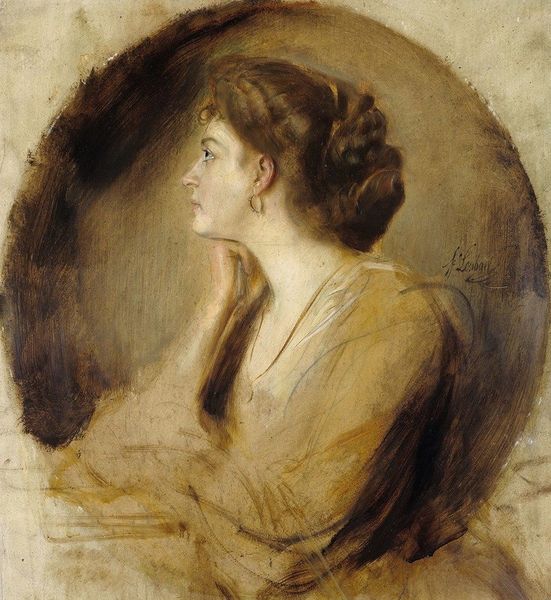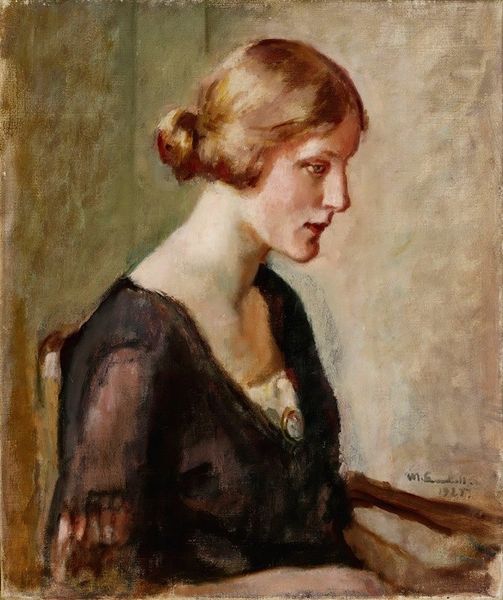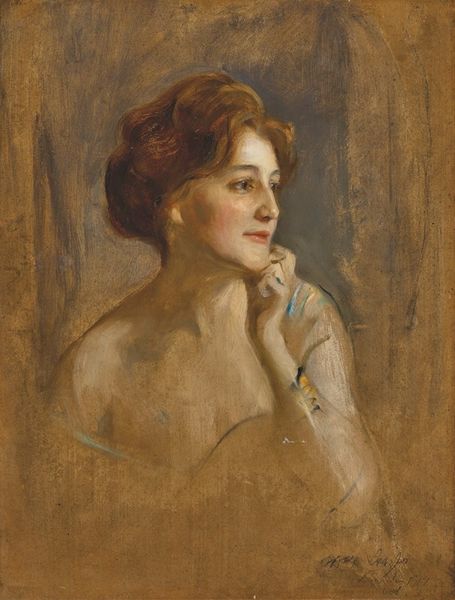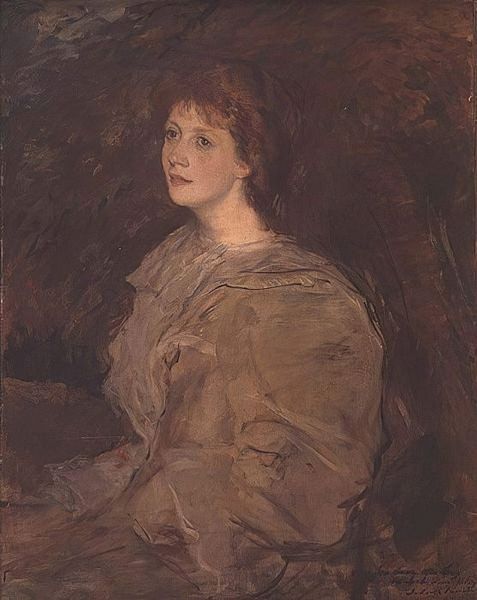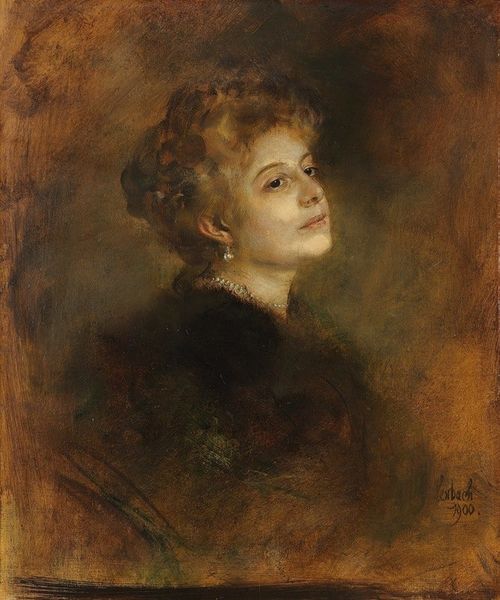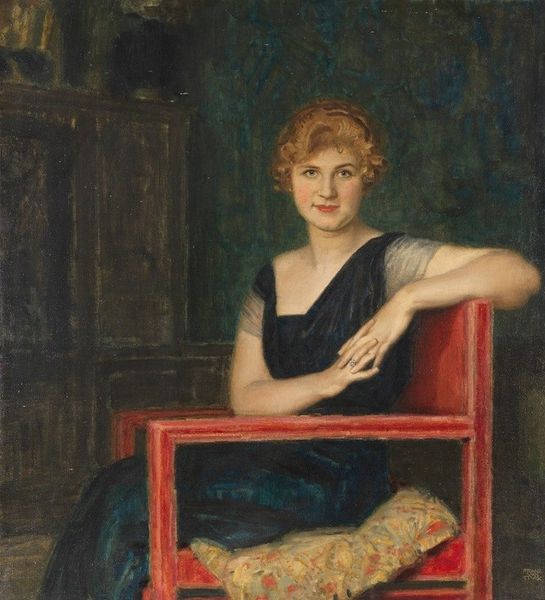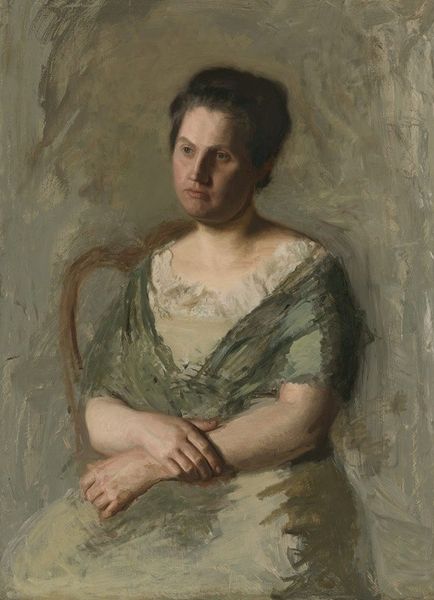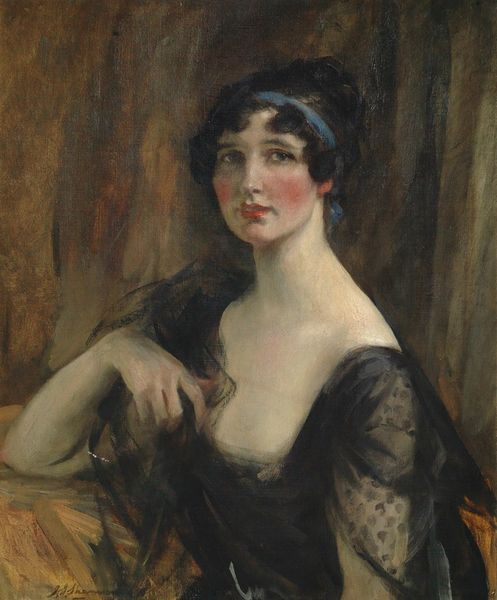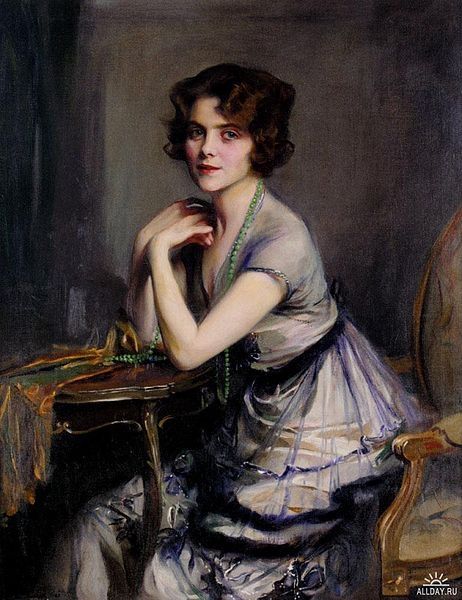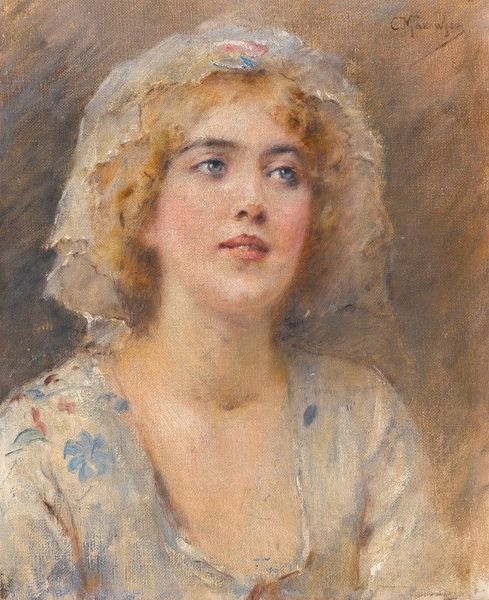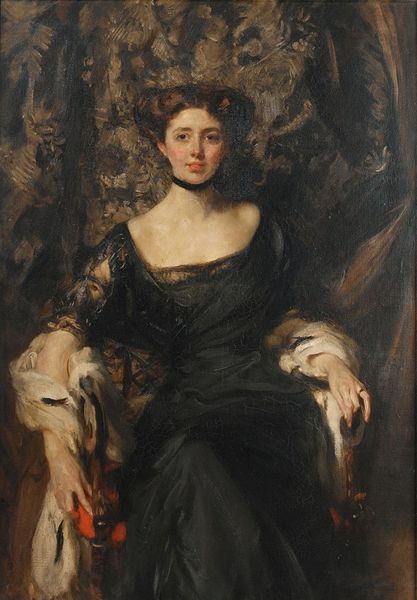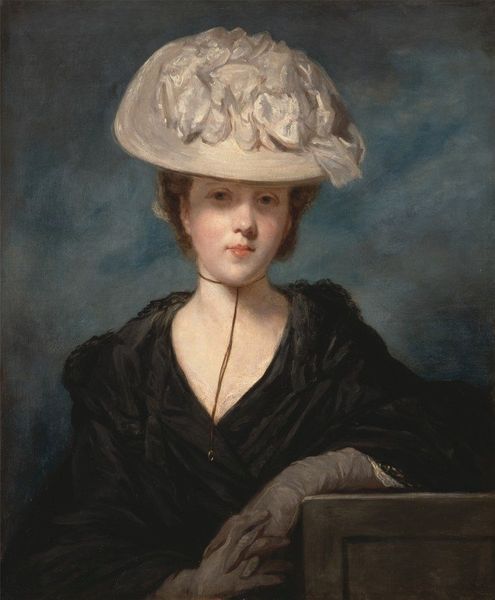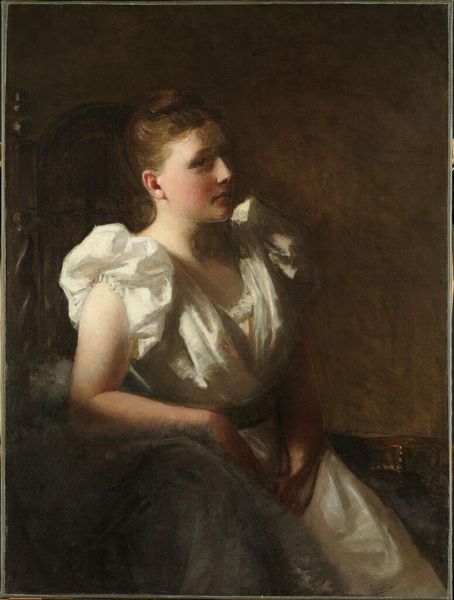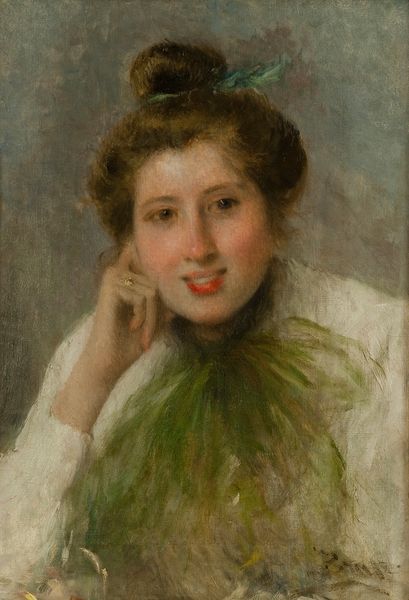
Copyright: Public domain
Editor: This is Robert Henri's "Miss Jessica Penn" from 1907, oil on canvas. It strikes me as incredibly intimate; she seems lost in thought, gazing out… What pulls you into this piece? Curator: It's funny you say intimate, because that’s precisely the word I'd use too. Henri really captures a sense of interiority, doesn’t he? Her gaze, that slight tilt of her head… It feels like catching a glimpse of a private moment. But it's also more than just a pretty picture. Think about the Ashcan School he spearheaded – they wanted to paint *real* life, not just idealized beauty. Editor: Right! And she definitely doesn’t feel idealized. She looks like someone I might know. Curator: Exactly! There’s a rawness to the brushwork, a directness in her expression. Henri wasn’t interested in slick surfaces or perfect features. He wanted to capture something deeper – a sense of personality, a feeling. You know, it makes you wonder, doesn't it? What was she thinking? What was their relationship like? What do *you* think? Editor: That's it. She is looking right at you. Now, the more I observe her face and clothing details, I believe Henri wanted the observer to wonder. This leads to greater intimacy, because there are no external cues as to what she's doing. The observer needs to project his thoughts to "meet her where she is." Curator: Yes! What I love is that painting invites that kind of active participation, doesn't it? Editor: Definitely! It makes you think about the relationship between artist and subject, and then *us* as viewers, completing the story. Curator: A painting is more than just paint and canvas; it is this magical combination of all these lives entangled through time. Thanks, Robert, and thanks, Miss Penn!
Comments
No comments
Be the first to comment and join the conversation on the ultimate creative platform.
